Amin Amirlatifi
CLINICSUM: Utilizing Language Models for Generating Clinical Summaries from Patient-Doctor Conversations
Dec 05, 2024



Abstract:This paper presents ClinicSum, a novel framework designed to automatically generate clinical summaries from patient-doctor conversations. It utilizes a two-module architecture: a retrieval-based filtering module that extracts Subjective, Objective, Assessment, and Plan (SOAP) information from conversation transcripts, and an inference module powered by fine-tuned Pre-trained Language Models (PLMs), which leverage the extracted SOAP data to generate abstracted clinical summaries. To fine-tune the PLM, we created a training dataset of consisting 1,473 conversations-summaries pair by consolidating two publicly available datasets, FigShare and MTS-Dialog, with ground truth summaries validated by Subject Matter Experts (SMEs). ClinicSum's effectiveness is evaluated through both automatic metrics (e.g., ROUGE, BERTScore) and expert human assessments. Results show that ClinicSum outperforms state-of-the-art PLMs, demonstrating superior precision, recall, and F-1 scores in automatic evaluations and receiving high preference from SMEs in human assessment, making it a robust solution for automated clinical summarization.
From Questions to Insightful Answers: Building an Informed Chatbot for University Resources
May 13, 2024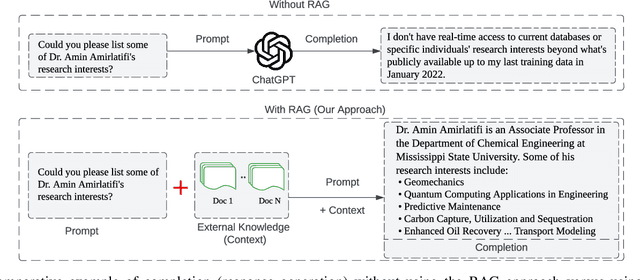
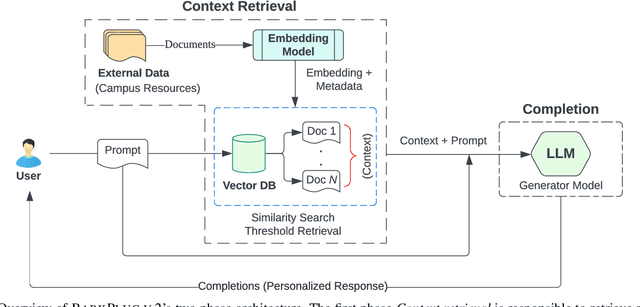
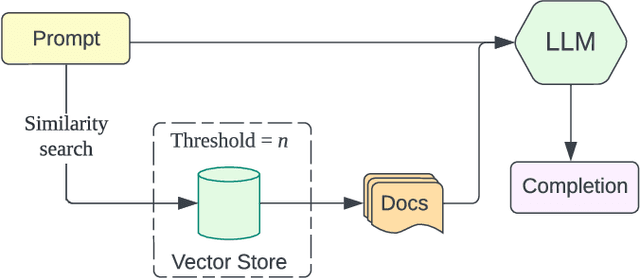
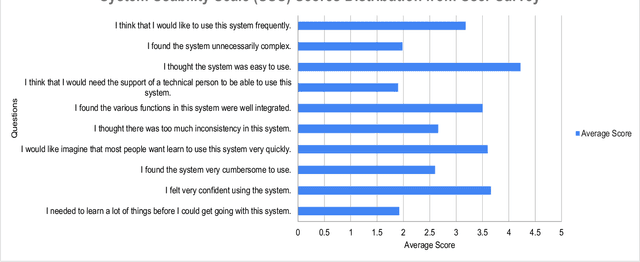
Abstract:This paper presents BARKPLUG V.2, a Large Language Model (LLM)-based chatbot system built using Retrieval Augmented Generation (RAG) pipelines to enhance the user experience and access to information within academic settings.The objective of BARKPLUG V.2 is to provide information to users about various campus resources, including academic departments, programs, campus facilities, and student resources at a university setting in an interactive fashion. Our system leverages university data as an external data corpus and ingests it into our RAG pipelines for domain-specific question-answering tasks. We evaluate the effectiveness of our system in generating accurate and pertinent responses for Mississippi State University, as a case study, using quantitative measures, employing frameworks such as Retrieval Augmented Generation Assessment(RAGAS). Furthermore, we evaluate the usability of this system via subjective satisfaction surveys using the System Usability Scale (SUS). Our system demonstrates impressive quantitative performance, with a mean RAGAS score of 0.96, and experience, as validated by usability assessments.
MedInsight: A Multi-Source Context Augmentation Framework for Generating Patient-Centric Medical Responses using Large Language Models
Mar 13, 2024



Abstract:Large Language Models (LLMs) have shown impressive capabilities in generating human-like responses. However, their lack of domain-specific knowledge limits their applicability in healthcare settings, where contextual and comprehensive responses are vital. To address this challenge and enable the generation of patient-centric responses that are contextually relevant and comprehensive, we propose MedInsight:a novel retrieval augmented framework that augments LLM inputs (prompts) with relevant background information from multiple sources. MedInsight extracts pertinent details from the patient's medical record or consultation transcript. It then integrates information from authoritative medical textbooks and curated web resources based on the patient's health history and condition. By constructing an augmented context combining the patient's record with relevant medical knowledge, MedInsight generates enriched, patient-specific responses tailored for healthcare applications such as diagnosis, treatment recommendations, or patient education. Experiments on the MTSamples dataset validate MedInsight's effectiveness in generating contextually appropriate medical responses. Quantitative evaluation using the Ragas metric and TruLens for answer similarity and answer correctness demonstrates the model's efficacy. Furthermore, human evaluation studies involving Subject Matter Expert (SMEs) confirm MedInsight's utility, with moderate inter-rater agreement on the relevance and correctness of the generated responses.
Patient-Centric Knowledge Graphs: A Survey of Current Methods, Challenges, and Applications
Feb 20, 2024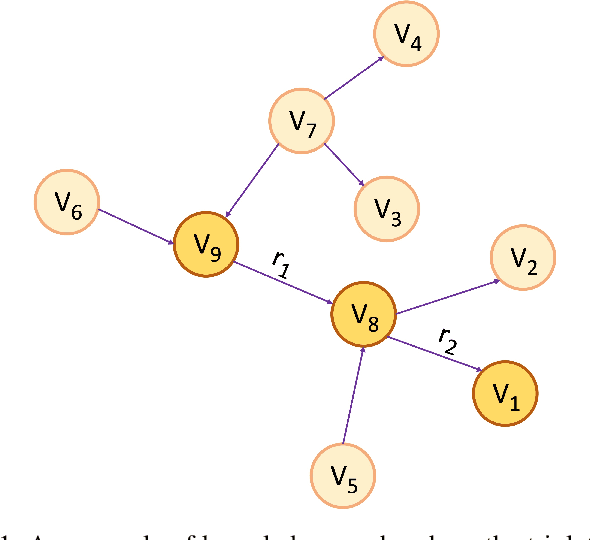
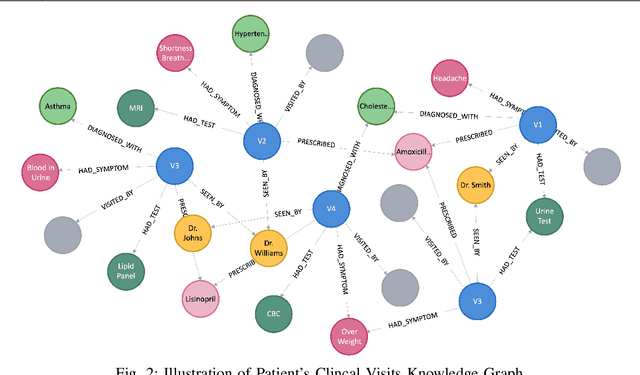
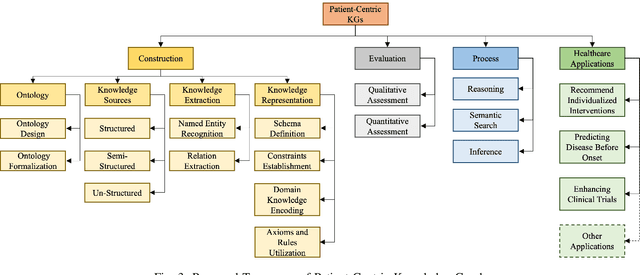
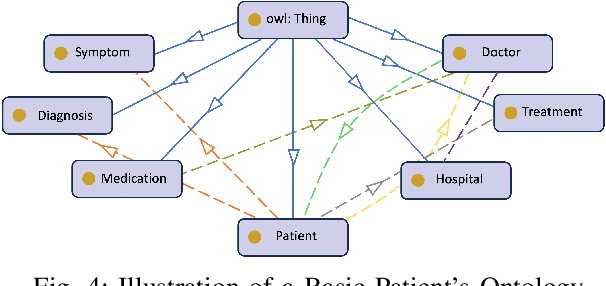
Abstract:Patient-Centric Knowledge Graphs (PCKGs) represent an important shift in healthcare that focuses on individualized patient care by mapping the patient's health information in a holistic and multi-dimensional way. PCKGs integrate various types of health data to provide healthcare professionals with a comprehensive understanding of a patient's health, enabling more personalized and effective care. This literature review explores the methodologies, challenges, and opportunities associated with PCKGs, focusing on their role in integrating disparate healthcare data and enhancing patient care through a unified health perspective. In addition, this review also discusses the complexities of PCKG development, including ontology design, data integration techniques, knowledge extraction, and structured representation of knowledge. It highlights advanced techniques such as reasoning, semantic search, and inference mechanisms essential in constructing and evaluating PCKGs for actionable healthcare insights. We further explore the practical applications of PCKGs in personalized medicine, emphasizing their significance in improving disease prediction and formulating effective treatment plans. Overall, this review provides a foundational perspective on the current state-of-the-art and best practices of PCKGs, guiding future research and applications in this dynamic field.
 Add to Chrome
Add to Chrome Add to Firefox
Add to Firefox Add to Edge
Add to Edge